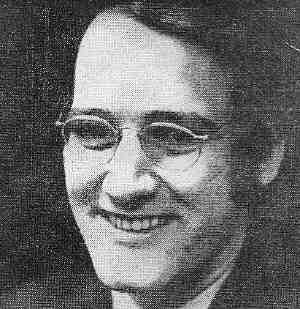- Born: 12 December 1941
- Died: 5 February 1975, Victoria Embankment aged 33
 Cause of his death was Car accident. Cause of his death was Car accident.

 General Notes: General Notes:
From the Observer, 9 February 1975
David Wilson, The Observer's Labour Correspondent was killed in a
London road accident on Wednesday night. He was 33, and leaves a
widow, Ann.
He joined The Observer in 1972, and was about to go to the United
States as the paper's Washington Correspondent.
In London, he usually travelled by bicycle; he was killed on the
Victoria Embankment, on one of his regular journeys between the office
and Whitehall.
David Wilson came from an unusual background for labour reporting, a
field where personal relationships can be especially important, and
which can be a minefield of class antagonisms. His father, now Master
of Corpus Christi College, Cambridge, is a former ambassador in
Belgrade, Moscow and Peking; one of his sisters is a cellist and the
other an artist; David was educated at Winchester and Oxford. But
trade unionists accepted him as he was, without reserve.
He was a man whom most people instinctively trusted. To a degree, he
may have been helped by his appearance: he ws tall, over 6ft, with
sparse dark hair, and wore tweed clothes carelessly; there was a
suggestion of unworldliness, and a donnish blink behind his
steel-rimmed spectacles. This faintly academic air was not
misleading, since he was notably rational and unimpassioned he had a
vast knowledge about trade union matters, but no axe to grind. After
the bitter Pilkington glass-works strike, he got three letters, each
congratulating him on his fairness: from the unoffical strikers, from
the trade union they defied, and from the employers. When he was 30,
he published an outstanding book about the docks, a contentious and
intractable subject, that was taken seriously by both the dockers and
the port employers.
Jack Jones, general secretary of the Transport and General Workers'
Union, said yeterday: 'His sincerity in investgating industrial
problems was unsurpassed in our experience.' David Bassnet, general
secretary of the General and Municipal Workers' Union, said: 'He set
a standard of reporting of the first order.' Clive Jenkins, general
secretary of the Association of Scientific Technical and Managerial
Staffs, said: 'He was an honest reporter.' Lord Stokes said: 'In
British Leyland, we had the highest regard for his integrity,
David Wilson's interest in industrial affairs was stimulated by the
first job he got after leaving Oxford in 1963, as a reporter on the
Blyth News, a local paper in the North-East. He said later that he
'learnt about the realities of life for working people in the decaying
towns on the Northumberland coalfield.' He started to concentrate on
labour relations in 1966, first for the Westminster Press and then for
the Financial Times.
He was invariably cooperative, equable, and enthusiastic. He could
write under pressure. He didn't work 'office hours'. Sunday
jounalists tend not to bother about attending events in their fields
that occur early in the week, relying on other papers to catch up;
David Wilson couldn't keep away; he like nothing better than talking
in the corner of a pub to a group of Welsh miners about some obscure
trade union point that would never even make the Welsh papers, let
alone the nationals. He was an enthusiast about cricket and the best
squash player in the office.
Besides being insatiably curious, he was methodical. He kept all his
notebooks in a neat, carefully-dated pile; he recorded the telephone
numbers of every trade unionist or employer he encountered and could
always tell you, if they weren't at home, a few other likely numbers
to call. He was highly professional, and frequently beat his rivals
to front page stories. Both he and his career were still developing;
he had many talents still untapped; many people felt he was certain
to go far, either in journalism or in politics.
He was surely a man without enemies; he has left his colleagues a
standard to live up to; and his many friends will not forget him.
|





